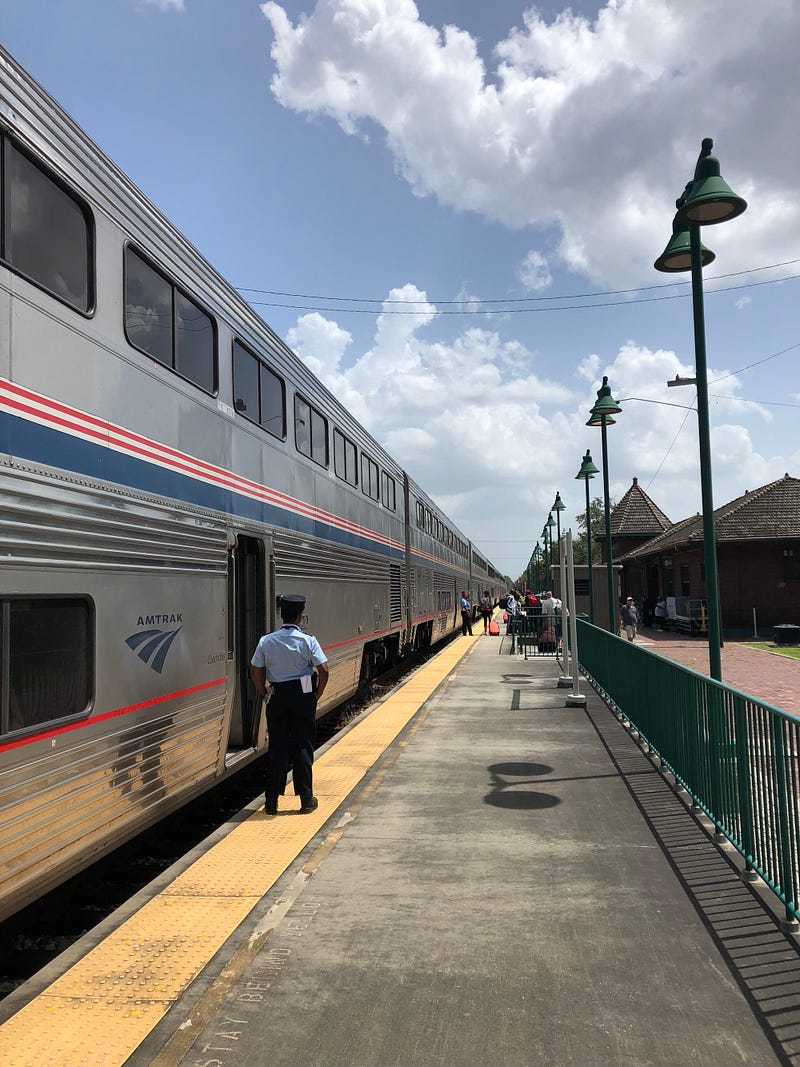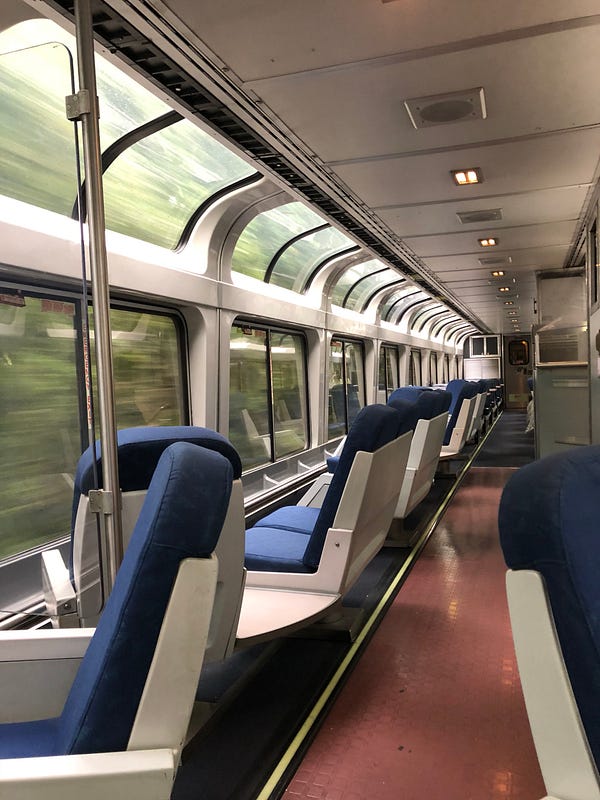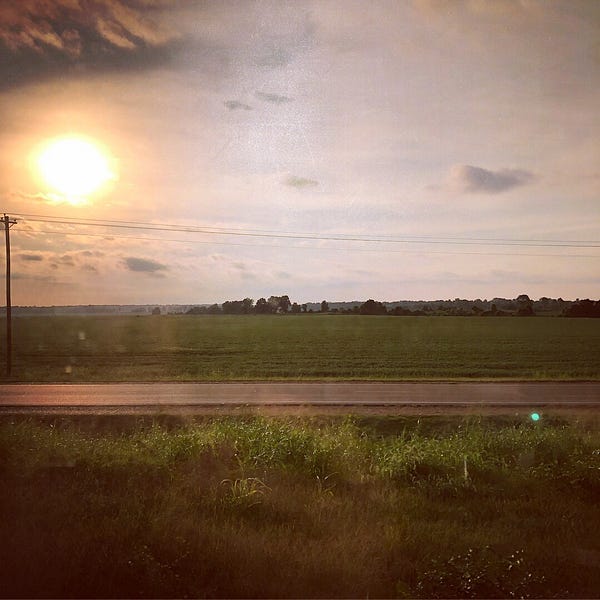To Memphis: A Forgotten Delta
 I boarded at the train station in Hammond. As I approached the ticket window, I was excited from the simple fact that the station smelled well-worn, like a museum. It reminded me of the smells of old wooden pews and choir loft hymnals in the churches that adorn small Southern towns.
I boarded at the train station in Hammond. As I approached the ticket window, I was excited from the simple fact that the station smelled well-worn, like a museum. It reminded me of the smells of old wooden pews and choir loft hymnals in the churches that adorn small Southern towns.Spending a Sunday on the train is worship in its own right. Like the congregations gathered outside their churches, all kinds of Americans, all shades, all origins are brought together on the train.
Everyone has a different reason for riding.
One lady I spoke with stopped flying altogether after her plane was subject to an attempted hijacking in the late 80s.
She’s taken the train ever since.
She’s taken the train ever since.
With no TSA lines and certainly more space for feet, pillows, snack bags and whatever else, there's a sense of ease about the train.
Trains are always bound for something, some place. I admire their sense of self: direct, intent, purposeful, charging headlong toward a far off destination.
No exit ramps or back streets or loops.
No diverting.
Cutting through terrain.
Cutting right through America.
While rocking back and forth, struggling to walk like a person with no sea legs, it’s easier to take a seat and watch the outside unfold like scenes in a film.
Somewhere under a bridge just past the station at McComb, Mississippi, lawn chairs were arranged and a few men, either homeless or otherwise, sat playing cards while a nearby friend reclined and drooled in an afternoon slumber.
 From the window the landscape passed by like brushstrokes of color. Cast in a lazy afternoon shadow, twisted scrap metal heaps and junkyards provided a welcome to places like Yazoo City. If you can call it that.
From the window the landscape passed by like brushstrokes of color. Cast in a lazy afternoon shadow, twisted scrap metal heaps and junkyards provided a welcome to places like Yazoo City. If you can call it that.In towns unnamed or unmarked, we cruised past streets of hollow brick buildings with worn proud facades that resembled the faces of wrinkled old men.
Through the grey rain-soaked fog they looked like ruins of some lost Confederate dream of the past. What remains is barred and shuttered.
To call these places ghost towns seems fitting since those are about the only things left here: ghosts, hallowed shells once walked but now visited by more stray dogs than people.
We passed an old cemetery along the tracks looking like some grim platform long abandoned.
Do you wave to the dead as you pass by? What stop are they headed for? They’re travelers in their own right; waiting for a train or something divine to take them to their next destination.
Riding through this part of the country felt like cutting through some forgotten heart of America — crumbling old Victorians in faded shades of pink, cruising past hidden Antebellums with chipped wood and crooked porches holding up aged, worn out Corinthian colonnades.
An hour later and swamps and bogs and bayous were giving way to tall, leaning pines that struggle for sunlight against strangling kudzu.
There were glimpses of life, however. When we stopped for a stretch at Greenwood, Mississippi, the platform bustled with good, old-fashioned American opportunity. A man the locals call "Big John" sold packs of cigarettes to dozens of nicotine-deprived passengers.
He walked away with enough cold hard cash to buy himself a ticket out of Greenwood. But why would he? His platform is more profitable than a corner store. It's a veritable entrepreneur's dream.
There were glimpses of life, however. When we stopped for a stretch at Greenwood, Mississippi, the platform bustled with good, old-fashioned American opportunity. A man the locals call "Big John" sold packs of cigarettes to dozens of nicotine-deprived passengers.
He walked away with enough cold hard cash to buy himself a ticket out of Greenwood. But why would he? His platform is more profitable than a corner store. It's a veritable entrepreneur's dream.
While sipping coffee after dinner, we came out of the Mississippi delta’s piney woods to see a creamsicle sunset over fields of cotton.
I'm amazed at how entertained I am at every scene and interaction. This feels temporary. Like a carnival ride and soon we’ll have to unbuckle and get back in line. It occurs to me that in other forms of travel, in other stages of life we pay so much attention to the beginnings and ends. But in this train the middle is what feels so rich. The passage itself is greater than the last stop.
The train is a reminder that sometimes in life we’re so worried about getting from point A to point B that we overlook the spaces in between.

Comments
Post a Comment
Don't be nice. Be honest.